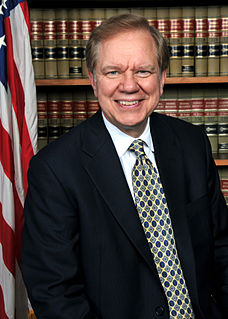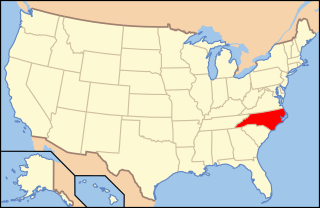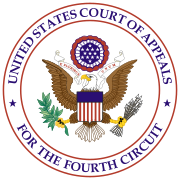
An injunction is a legal and equitable remedy in the form of a special court order that compels a party to do or refrain from specific acts. "When a court employs the extraordinary remedy of injunction, it directs the conduct of a party, and does so with the backing of its full coercive powers." A party that fails to comply with an injunction faces criminal or civil penalties, including possible monetary sanctions and even imprisonment. They can also be charged with contempt of court. Counterinjunctions are injunctions that stop or reverse the enforcement of another injunction.
In law, a dwelling is a self-contained unit of accommodation used by one or more households as a home - such as a house, apartment, mobile home, houseboat, vehicle, or other "substantial" structure. The concept of a dwelling has significance in relation to search and seizure, conveyancing of real property, burglary, trespass, and land-use planning.

Diane Schwerm Sykes is an American jurist and lawyer who serves as the chief judge of the U.S. Court of Appeals for the Seventh Circuit. She served as a justice of the Wisconsin Supreme Court from 1999 to 2004.

Trespass to land is a common law tort or crime that is committed when an individual or the object of an individual intentionally enters the land of another without a lawful excuse. Trespass to land is actionable per se. Thus, the party whose land is entered upon may sue even if no actual harm is done. In some jurisdictions, this rule may also apply to entry upon public land having restricted access. A court may order payment of damages or an injunction to remedy the tort.

Thomas Lee Ambro is a United States Circuit Judge of the United States Court of Appeals for the Third Circuit. He began his judicial service in 2000.

Floyd Bixler McKissick was an American lawyer and civil rights activist. He became the first African-American student at the University of North Carolina School of Law. In 1966 he became leader of CORE, the Congress of Racial Equality, taking over from James Farmer. A supporter of Black Power, he turned CORE into a more radical movement. In 1968, McKissick left CORE to found Soul City in Warren County, North Carolina. He endorsed Richard Nixon for president that year, and the federal government, under President Nixon, supported Soul City. He became a state district court judge in 1990 and died on April 28, 1991. He was a member of Alpha Phi Alpha fraternity.

In United States law, a federal enclave is a parcel of federal property within a state that is under the "Special Maritime and Territorial Jurisdiction of the United States". In 1960, the year of the latest comprehensive inquiry, 7% of federal property had enclave status. Of the land with federal enclave status, 57% was under "concurrent" state jurisdiction. The remaining 43%, on which some state laws do not apply, was scattered almost at random throughout the United States. In 1960, there were about 5,000 enclaves, with about one million people living on them. While a comprehensive inquiry has not been performed since 1960, these statistics are likely much lower today, since many federal enclaves were military bases that have been closed and transferred out of federal ownership.
Douglas E. Moore was a Methodist minister who organized the 1957 Royal Ice Cream Sit-in in Durham, North Carolina. Moore entered the ministry at a young age. After finding himself dissatisfied with what he perceived as a lack of action among his divinity peers, he decided to take a more activist course. Shortly after becoming a pastor in Durham, Moore decided to challenge the city's power structure via the Royal Ice Cream Sit-in, a protest in which he and several others sat down in the white section of an ice cream parlor and asked to be served. The sit-in failed to challenge segregation in the short run, and Moore's actions provoked a myriad of negative reactions from many white and African-American leaders, who considered his efforts far too radical. Nevertheless, Moore continued to press forward with his agenda of activism.
Disparate treatment is one kind of unlawful discrimination in US labor law. In the United States, it means unequal behavior toward someone because of a protected characteristic under Title VII of the United States Civil Rights Act. This contrasts with disparate impact, where an employer applies a neutral rule that treats everyone equally in form, but has a disadvantageous effect on some people of a protected characteristic compared to others.
The Moses H. Cone Memorial Hospital, also known as Moses Cone Hospital, is a 517-bed tertiary care facility located in Greensboro, North Carolina. The hospital opened in 1953 on North Elm Street as a 310-bed community hospital. Moses Cone Hospital is the central facility of Cone Health, a network of medical care facilities serving Guilford County, North Carolina and surrounding areas. As of 2019, its president is Preston Hammock.

Lesbian, gay, bisexual, and transgender (LGBT) persons in the U.S. state of North Carolina may face legal challenges not experienced by non-LGBT residents, or LGBT residents of other states with more liberal laws.
Thornburg v. Gingles, 478 U.S. 30 (1986), was a United States Supreme Court case in which a unanimous Court found that "the legacy of official discrimination ... acted in concert with the multimember districting scheme to impair the ability of "cohesive groups of black voters to participate equally in the political process and to elect candidates of their choice." The ruling resulted in the invalidation of districts in the North Carolina General Assembly and led to more single-member districts in state legislatures.
The Royal Ice Cream sit-in was a nonviolent protest in Durham, North Carolina, that led to a court case on the legality of segregated facilities. The demonstration took place on June 23, 1957 when a group of African American protesters, led by Reverend Douglas E. Moore, entered the Royal Ice Cream Parlor and sat in the section reserved for white patrons. When asked to move, the protesters refused and were arrested for trespassing. The case was appealed unsuccessfully to the County and State Superior Courts.
Desegregation of theaters in Durham, North Carolina, United States, followed a series of protests between 1961 and 1963, as well as petitions to local government officials and eventually legal action. The protests eventually came to focus on the Carolina Theater. In March 1962, the theater's manager rejected a proposal from the local NAACP chapter to negotiate its desegregation and later refused the city council's request that it reconsider the decision. In response, the protesters began "round-robin" demonstrations. After a court order ended those demonstrations, activists took their case to the courts. Eventually, in July 1963, after mass demonstrations and support from new mayor Wense Grabarek, Durham's segregated movie theaters began to open to all the public.
Grazing rights in Nevada covers a number of rangeland Federal and state laws and regulations applicable to the state of Nevada. Rangelands are distinguished from pasture lands because they grow primarily native vegetation, rather than plants established by humans. Ranchers may lease or obtain permits to use portions of this public rangeland and pay a fee based on the number and type of livestock and the period for which they are on the land.

Dr. George Simkins Jr. was a dentist, community leader in Greensboro, North Carolina, and civil rights activist. During the 1950s, he won several significant desegregation lawsuits and was, for a quarter of a century, the president of the Greensboro branch of the National Association for the Advancement of Colored People (NAACP).
Newman v. Piggie Park Enterprises, Inc., 390 U.S. 400 (1968), is a 1968 United States Supreme Court case in which the court held per curiam that after a successful effort to obtain an injunction under Title II of the Civil Rights Act of 1964, attorney's fees under Section 204(b) are generally recoverable.
Wolfe v. North Carolina, 364 U.S. 177 (1960), is a 1960 United States Supreme Court case in which the court, in a 5–4 decision, upheld the trespassing conviction of six African-American men who were barred from a golf course because of their race.
Simkins v. Moses H. Cone Memorial Hospital, 323 F.2d 959, was a federal case, reaching the Fourth Circuit Court of Appeals, which held that "separate but equal" racial segregation in publicly funded hospitals was a violation of equal protection under the United States Constitution.
This article addresses the legal and regulatory history of transgender and transsexual people in the United States including case law and governmental regulatory action affecting their legal status and privileges, at the federal, state, municipal, and local level, and including military justice as well.








